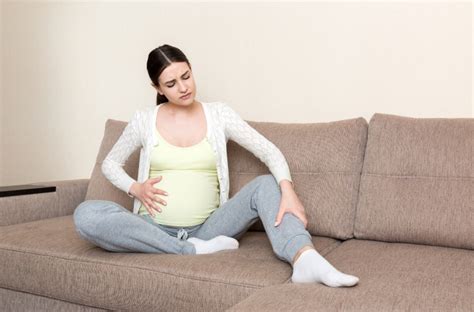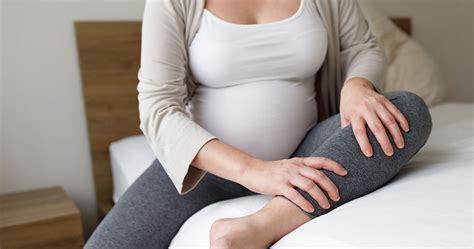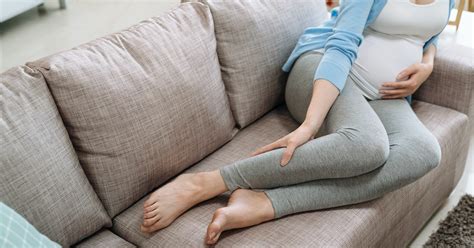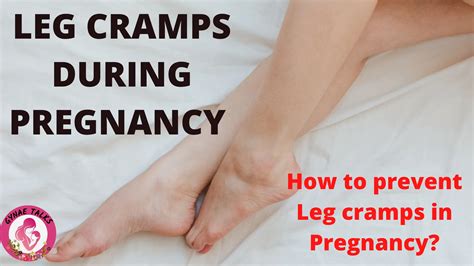Intro
Pregnancy is a time of great joy and anticipation, but it can also be a time of great discomfort and pain. One of the most common complaints among pregnant women is leg cramps, which can be debilitating and disrupt daily life. Leg cramps during pregnancy are a normal phenomenon, affecting up to 50% of expectant mothers. Despite their prevalence, leg cramps can be a source of significant distress, interfering with sleep, mobility, and overall well-being. Understanding the causes, symptoms, and treatment options for pregnancy leg cramps is essential for managing this condition and ensuring a healthy pregnancy.
Leg cramps during pregnancy can occur at any time, but they are most common during the second and third trimesters. The exact cause of leg cramps during pregnancy is not fully understood, but several factors are thought to contribute to their development. These include changes in blood circulation, pressure on the nerves, and electrolyte imbalances. As the uterus expands, it can put pressure on the nerves and blood vessels in the legs, leading to cramping and discomfort. Additionally, hormonal changes and fluid retention can disrupt electrolyte balances, further contributing to leg cramps.
The symptoms of pregnancy leg cramps can vary in severity and duration. Some women may experience mild, fleeting cramps, while others may suffer from severe, debilitating pain that lasts for hours. Leg cramps can occur in any part of the leg, but they are most common in the calf and foot. They can be triggered by a variety of factors, including fatigue, dehydration, and certain medications. In some cases, leg cramps can be a sign of an underlying medical condition, such as a nutritional deficiency or a circulation problem. It is essential to discuss any concerns or symptoms with a healthcare provider to rule out any underlying conditions.
Causes of Pregnancy Leg Cramps

Hormonal Changes
Hormonal changes during pregnancy can also contribute to leg cramps. The hormone progesterone, which increases during pregnancy, can cause relaxation of the muscles and lead to cramping. Additionally, the hormone relaxin, which helps to relax the ligaments and tendons, can also contribute to muscle cramping.Electrolyte Imbalances
Electrolyte imbalances, particularly in the levels of calcium, magnesium, and potassium, can also contribute to leg cramps. These electrolytes play a crucial role in muscle function, and imbalances can lead to muscle cramping and spasms. During pregnancy, the body's demand for these electrolytes increases, and deficiencies can occur if the diet is inadequate.Symptoms of Pregnancy Leg Cramps

Severity of Leg Cramps
The severity of leg cramps can vary significantly from woman to woman. Some women may experience mild cramps that are barely noticeable, while others may suffer from severe, debilitating pain that interferes with daily life. In some cases, leg cramps can be so severe that they wake a woman up from sleep or make it difficult to walk.Duration of Leg Cramps
The duration of leg cramps can also vary significantly. Some women may experience cramps that last for only a few seconds, while others may suffer from cramps that last for hours. In some cases, leg cramps can be recurring, with multiple episodes occurring throughout the day.Treatment Options for Pregnancy Leg Cramps

Lifestyle Modifications
Lifestyle modifications can play a significant role in reducing the frequency and severity of leg cramps. Stretching and exercise can help to improve circulation and reduce muscle tension. Relaxation techniques, such as deep breathing and meditation, can also help to reduce stress and alleviate leg cramps.Dietary Changes
Dietary changes can also help to alleviate leg cramps. Increasing calcium and magnesium intake can help to reduce muscle cramping and spasms. Foods rich in these electrolytes, such as dairy products, leafy greens, and nuts, can be particularly beneficial. Additionally, staying hydrated by drinking plenty of water can help to reduce the frequency and severity of leg cramps.Prevention of Pregnancy Leg Cramps

Importance of Prenatal Care
Prenatal care is essential for preventing and managing pregnancy leg cramps. Regular check-ups with a healthcare provider can help to identify any underlying medical conditions that may be contributing to leg cramps. Additionally, a healthcare provider can provide guidance on lifestyle modifications and dietary changes that can help to alleviate leg cramps.Role of Nutrition
Nutrition plays a critical role in preventing and managing pregnancy leg cramps. A diet rich in calcium, magnesium, and potassium can help to reduce muscle cramping and spasms. Additionally, staying hydrated by drinking plenty of water can help to reduce the frequency and severity of leg cramps.What are the most common causes of pregnancy leg cramps?
+The most common causes of pregnancy leg cramps include hormonal changes, electrolyte imbalances, and changes in blood circulation.
How can I prevent pregnancy leg cramps?
+To prevent pregnancy leg cramps, maintain a healthy diet, stay hydrated, and engage in regular exercise. Additionally, consider taking a prenatal vitamin that contains calcium and magnesium.
What are the best treatments for pregnancy leg cramps?
+The best treatments for pregnancy leg cramps include lifestyle modifications, dietary changes, and medical interventions. Stretching, exercise, and relaxation techniques can help to reduce the frequency and severity of leg cramps. Increasing calcium and magnesium intake can also help to alleviate leg cramps.
As we conclude our discussion on pregnancy leg cramps, it is essential to remember that this condition is a common phenomenon that affects many pregnant women. By understanding the causes, symptoms, and treatment options, women can take steps to manage and prevent leg cramps. If you are experiencing leg cramps during pregnancy, we encourage you to share your experiences and tips with us. Additionally, if you have any questions or concerns, please do not hesitate to reach out to your healthcare provider. By working together, we can ensure a healthy and comfortable pregnancy for all women.
